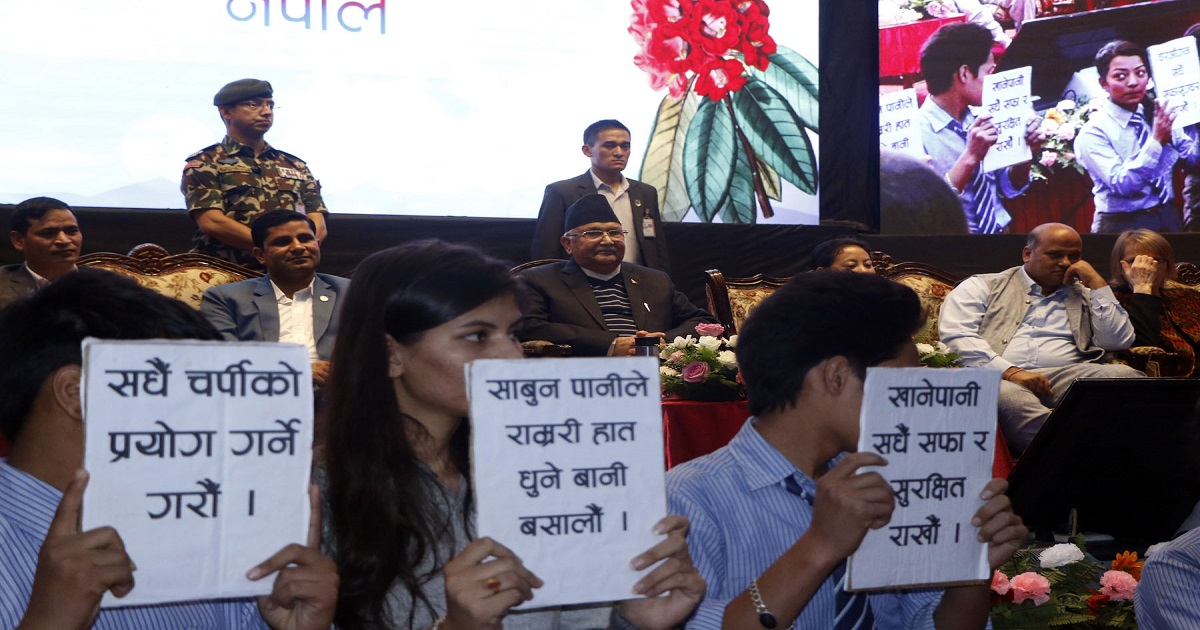KATHMANDU: ‘World Toilet Day’ is being marked today with the theme “Leaving No One Behind.”
The country is observing World Toilet Day on Tuesday by organizing various mass awareness activities. Various government and non-government organizations will mark the day by organizing various programs.
‘World Toilet Day’ is marked as a day to generate awareness and inspire action to tackle the global sanitation crisis. When a person does not own or have access to a toilet, he or she is vulnerable and can be “left behind” in terms of health, dignity, and opportunity.
In 2013, the United Nations General Assembly officially designated November 19 as World Toilet Day.
The Sustainable Development Goals aim to reach everyone with sanitation by 2030.
Nepal had declared an open defecation-free (ODF) country on September 30, making Nepal the first South Asian country to be officially recognized ODF. This means that every household in Nepal now has access to the toilet.
The campaign to declare open defecation-free local levels and districts had begun in 2011. Even though the government had planned to declare the country ODF by 2017, it was delayed owing to some circumstances.
A total of 5 million and 660,214 toilets have been constructed throughout the country after the government initiated the campaign in 2011.
However, during that time over 9 million people in the country did not have sanitation facilities, the World Bank said.
All people should have access to safe sanitation services, including hygienic toilets that are connected to quality sewage systems, said the World Health Organisation (WHO).
According to the WHO, in South-East Asia Region, including Nepal, access to these services remains a problem, with 900 million people Region-wide lacking basic sanitation, and more than 500 million practicing open defecation.
Similarly, today 4.2 billion live without a safe toilet and 673 million people still practice open defecation around the world.
“This leads to increased human-feces contact and the transmission of a range of diseases, from cholera to typhoid and hepatitis A and E to tapeworm,” said WHO.
In recent years member states have made significant progress. Region-wide, urban coverage of basic sanitation is now close to 70 percent.
In the majority of countries, rural coverage exceeds 50 percent. As outlined in WHO’s recently launched Guidelines on Sanitation and Health, there are several ways member states can sustain their many gains, accelerate progress and make safe sanitation services accessible to all.
First, health authorities should work across sectors to ensure all communities have access to toilets that adequately contain excreta.
Second, authorities should ensure all toilets are connected to services that provide safe sewage treatment and disposal.
And third, health facilities themselves must provide safe and functional water, sanitation and hygiene services.
Region-wide, too many facilities still lack these basic services, representing a missed opportunity to drive down healthcare-associated infections, reduce the length of hospital stays and decrease maternal and newborn deaths among other benefits.
WHO further added that it is committed to supporting the member states as they strive to make toilets and safe sanitation services accessible to all.
The world is not on track to reach Sustainable Development Goal 6 (SDG 6): to ensure availability and sustainable management of sanitation and water for all by 2030.
SDG 6 aims to ensure that everyone has a safe toilet and that no-one practices open defecation by 2030. Failure to achieve this goal risks the entire 2030 Agenda for Sustainable Development.
The impact of exposure to human feces on this scale has a devastating impact on public health, living and working conditions, nutrition, education and economic productivity across the world.









Comment